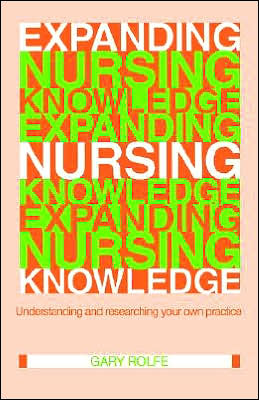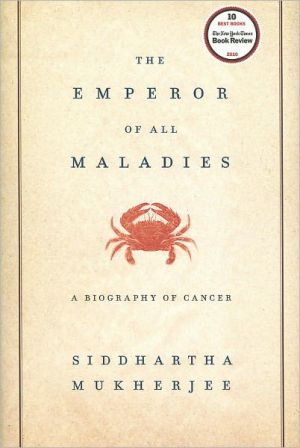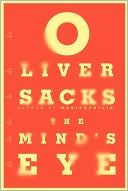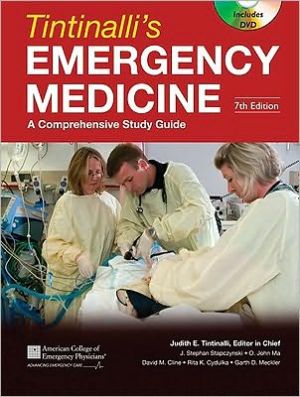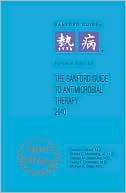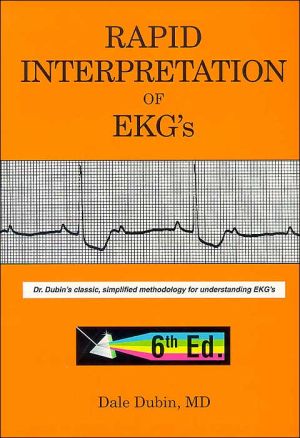Expanding Nursing Knowledge: Understanding and Researching your own Practice
This is a book for all nurses, midwives and health visitors who have to comply with the PREP and need to develop an interest in critically examining their own practice. It will be easy to read and will tackle what to many nurses is a great challenge, in a series of logical steps.\ \ \ The book contains black-and-white illustrations.\
Search in google:
This is a book for all nurses, midwives and health visitors who have to comply with the PREP and need to develop an interest in critically examining their own practice. It will be easy to read and will tackle what to many nurses is a great challenge, in a series of logical steps. Gayle J. Acton This book presents the argument that the development of nursing practice has been hindered by the use of methodologies that do not promote researching the truths central to the core of nursing. The purpose is to explore ways in which nurses and other healthcare practitioners can conduct research into their own personal practices. The author argues that such research raises a number of complex methodological and practical problems because the idea of nurses subjectively researching their own practice is counter to the dominant research paradigm that promotes generalizable scientific knowledge. The author states that this is a guidebook aimed at the practitioner/researcher. The overall design of the book is pleasing. The text is well written and easy to read. The chapters are well organized and contain tables and figures of important information which are helpful to the reader. Reflective Practice exercises which aid the reader in examining his or her own nursing practice appear throughout. This book helps the reader generate new ideas about practice-based nursing, arguing that the profession must find an alternative to the dominant research paradigm as well as its dependence on academic researchers who are unfamiliar with the practice setting. The philosophical nature of nursing knowledge is explored and attempts are made to generate a model of professional judgment. Chapters examine how professional judgment is related to the development of nursing practice and how nursing decisions can generate new knowledge and theory for practice in a way that scientific research is unable. Finally, the author proposes three new research methodologies; single case experiments, reflective case study,and reflexive action research. Each is explained in the text and proposed as a methodological alternative to the traditional research paradigm for generating nursing knowledge.
PrefacePt. 1Understanding Your Practice11Nursing knowledge72Professional judgement40Pt. 2Researching Your Practice653A new paradigm for the practitioner-researcher714Single-case experimental research1025Reflective case-study research1276Reflexive action research171Epilogue: towards a critical community199References206Index215
\ From The CriticsReviewer: Gayle J. Acton, PhD, RNC(University of Texas at Austin School of Nursing)\ Description: This book presents the argument that the development of nursing practice has been hindered by the use of methodologies that do not promote researching the truths central to the core of nursing.\ Purpose: The purpose is to explore ways in which nurses and other healthcare practitioners can conduct research into their own personal practices. The author argues that such research raises a number of complex methodological and practical problems because the idea of nurses subjectively researching their own practice is counter to the dominant research paradigm that promotes generalizable scientific knowledge.\ Audience: The author states that this is a guidebook aimed at the practitioner/researcher.\ Features: The overall design of the book is pleasing. The text is well written and easy to read. The chapters are well organized and contain tables and figures of important information which are helpful to the reader. Reflective Practice exercises which aid the reader in examining his or her own nursing practice appear throughout.\ Assessment: This book helps the reader generate new ideas about practice-based nursing, arguing that the profession must find an alternative to the dominant research paradigm as well as its dependence on academic researchers who are unfamiliar with the practice setting. The philosophical nature of nursing knowledge is explored and attempts are made to generate a model of professional judgment. Chapters examine how professional judgment is related to the development of nursing practice and how nursing decisions can generate new knowledge and theory for practice in a way that scientific research is unable. Finally, the author proposes three new research methodologies; single case experiments, reflective case study, and reflexive action research. Each is explained in the text and proposed as a methodological alternative to the traditional research paradigm for generating nursing knowledge.\ \ \ \ \ From the Publisher"Unusually, I want to start this book review by looking at the book s cover. This shouts the title at you three times in white, orange and lime green on a pink background, demanding your attention and seeming to say, in a sort of 70s way, this book is about something new and it will blow your mind . Those familiar with Rolfe s previous book (Rolfe 1996) and his other writings will be aware of his claims for newness and personal innovation in seeking to put forward a new paradigm for nursing, and here a new paradigm for nursing research...\ The present book, therefore, needs to be considered within the context of a number of other recent books concerned with the two topics it addresses, the development of theory in nursing and practitioner research and the place of practitioner knowledge, whether from research or experience, in the promotion of clinical effectiveness.\ The book is divided clearly into two parts. The first part deals with the types of knowledge underpinning nursing practice and the ways in which these types of knowledge are generated, and the second is concerned with practitioner research and three approaches practitioners might use to undertake research. In the preface Rolfe indicates that this book, can be seen as a companion to my earlier book (p. viii), and I would suggest that it is essential when reading this book that the first is also available.\ The main arguments put forward are that insufficient attention is given to knowledge generated from practice, which, by its nature, is relevant to practice, and to the question of how different types of knowledge may be incorporated into practice. The case is then argued for all nurses to be involved in practitioner centred research, although Rolfe contends that few nurses are involved in the self aware practice required of the practitioner centred researcher. These issues are at the heart of the clinical effectiveness debate which is, in effect, concerned with the temperature taking question over and over again, that is, how relevant is this research finding to clinical practice?\ The first part of the book discusses the types of knowledge used in nursing and the process by which the self aware nurse is able to identify and integrate personal, scientific and experimental knowledge into practice. A useful diagram of a model of professional judgement is provided, which is also found in the first book as a model of nursing praxis...\ The second half of the book extends the understanding of the contribution practitioner research may make to the theory practice relationship...\ The next chapters describe three approaches to research which the practitioner may use: single case experiments, case study research and action research. These chapters provide a useful discussion of the strengths and challenges of these approaches. All three approaches are eminently suitable for practitioner research or practitioner centred research and this part of the book would be particularly useful for practitioners starting out on research who, when faced with the extensive literature on research design and methods, can be totally overwhelmed. This book has the potential to prevent them being seduced by other designs which may be in current vogue...\ In the final chapter Rolfe tackles the issue of the standing of the knowledge generated by practitioner research and puts forward a suggestion for the development of critical communities of practitioner researchers. Here he has identified both the research issues surrounding practitioner research and the organizational context which may or may not support practitioner research...\ The ground covered in this book is extensive. In the preface Rolfe indicates that the first half was included as an explanation, for those coming from a more traditional research position, of the theoretical issues relevant to practitioner research. The second half will have more immediate relevance to practitioner researchers or practitioner centred researchers whether they agree or not with the theoretical arguments made in the first part... it certainly challenges all of us to think and makes an important contribution to the debate on research by practitioners."Rosamund Bryar, Clinical Effectiveness in Nursing 2, 162 168., January 1997\ \ \ \ Gayle J. ActonThis book presents the argument that the development of nursing practice has been hindered by the use of methodologies that do not promote researching the truths central to the core of nursing. The purpose is to explore ways in which nurses and other healthcare practitioners can conduct research into their own personal practices. The author argues that such research raises a number of complex methodological and practical problems because the idea of nurses subjectively researching their own practice is counter to the dominant research paradigm that promotes generalizable scientific knowledge. The author states that this is a guidebook aimed at the practitioner/researcher. The overall design of the book is pleasing. The text is well written and easy to read. The chapters are well organized and contain tables and figures of important information which are helpful to the reader. Reflective Practice exercises which aid the reader in examining his or her own nursing practice appear throughout. This book helps the reader generate new ideas about practice-based nursing, arguing that the profession must find an alternative to the dominant research paradigm as well as its dependence on academic researchers who are unfamiliar with the practice setting. The philosophical nature of nursing knowledge is explored and attempts are made to generate a model of professional judgment. Chapters examine how professional judgment is related to the development of nursing practice and how nursing decisions can generate new knowledge and theory for practice in a way that scientific research is unable. Finally, the author proposes three new research methodologies; single case experiments, reflective case study,and reflexive action research. Each is explained in the text and proposed as a methodological alternative to the traditional research paradigm for generating nursing knowledge.\ \ \ \ \ BooknewsEngages nurse, midwives, and other health care practitioners in an exploration of their own clinical knowledge base and demonstrates how to expand it through reflection and practitioner-centered research. Written in a direct, informal style, material explains different types of knowledge practitioners possess and encourages them to consider the personal and experiential theory which informs their clinical decisions. Information on methodology, research design, and data collection and analysis is given on three types of research. Includes discussion questions and writing exercises, plus chapter summaries. Annotation c. by Book News, Inc., Portland, Or.\ \ \ \ \ 3 Stars from Doody\ \
